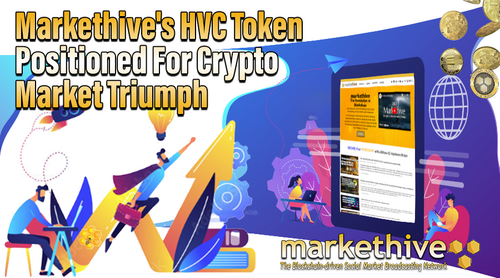


Image Source: Pixabay
UK could pass stablecoin, staking laws within six months: Report
U.K. Minister Bim Afolami says the government is working “very hard” to pass crypto-specific legislation in the country.
The United Kingdom is aiming to pass new laws regulating stablecoins and crypto staking within the next six months.
Speaking at a Coinbase-hosted crypto event in London on Feb. 19, Economic Secretary to the Treasury Bim Afolami said the government was working hard to ensure the new legislation was passed ahead of this year’s general election, Bloomberg reported.
“We’re very clear that we want to get these things done as soon as possible. And I think over the next six months, those things are doable.”
Afolami remained tight-lipped when pressed for more specific details concerning the long-awaited crypto regulation.
‘“Short answer is, I don’t know [...] There’s just a huge amount going on, so I don’t want to commit to that now,” he said. Read More
Sports Illustrated moves NFT ticketing platform to Avalanche
SI Tickets CEO David Lane explained that while normal tickets end up in the trash, NFT tickets could bring more experiences to holders and opportunities for event organizers.
The ticketing arm of the United States-based sports magazine Sports Illustrated announced it is moving its nonfungible token (NFT) ticketing platform called “Box Office” from the Polygon blockchain to Avalanche, almost 10 months after its launch.
On Feb. 20, SI Tickets announced a collaboration with Ava Labs, the developers of the Avalanche network. The partnership will allow the NFT ticketing platform to mint their NFT tickets using the Avalanche blockchain. Avalanche will also assist Box Office in transforming event tickets into dynamic content to engage with guests.
In May 2023, the NFT ticketing platform was launched on Polygon to enable event organizers to provide exclusive benefits to their guests, such as expedited entry passes, drink coupons and music downloads before events. The holders of the NFT tickets could also gain benefits like video content after the event and further rewards tied to their event ticket. Read More
Decentralized physical infrastructure network (DePIN), explained
Decentralized physical infrastructure networks (DePIN) refer to the application of blockchain technology and decentralization principles to physical infrastructure and systems.
In recent years, the rise of blockchain technology has catalysed a paradigm shift in how we perceive and interact with digital systems. From decentralized finance (DeFi) to nonfungible tokens (NFTs), the principles of decentralization have revolutionized various aspects of our digital lives. However, this revolution is not limited to the virtual realm.
Enter decentralized physical infrastructure networks (DePINs), a novel concept that extends the ethos of decentralization to tangible infrastructure, promising to reshape industries and empower individuals in unprecedented ways. DePINs enable autonomous, real-time interactions inside physical infrastructures through technologies like smart contracts and the Internet of Things (IoT), increasing system responsiveness and adaptability to human demands. Read More
Solana Integrates Filecoin to Enhance Historic Data Accessibility
The Solana blockchain is integrating the services of Filecoin, a file-saving blockchain system protocol launched in 2020, to increase the availability level of certain data in its blockchain. According to a post by Filecoin on X, Solana’s integration includes saving its block history using Filecoin’s capabilities.
This will enhance the discoverability and retrieval of this data for third-party applications that make use of this data, like infrastructure providers, explorers, indexers, and anyone needing historical access. Filecoin states this move constitutes “a significant move away from centralized storage solutions and a remarkable step towards enhancing the reliability and scalability of the Solana blockchain.”
It also reported this will bring enhanced data redundancy, scalability, and security while “staying true to its decentralized ethos.” Read More

As the crypto industry gears up for the next bull run, Markethive isn't just sitting on the sidelines – it's rolling up its sleeves and diving into the action, poised to shine on the high-performance stage of the Solana blockchain. At the heart of this venture is Markethive's native cryptocurrency, Hivecoin (HVC), a key player ready to unlock the industry's full potential. Solana's reputation for speed and scalability provides the perfect playground for Markethive's ambitious goals.
Cryptocurrency and blockchain have shaken the business world, creating a new era of possibilities. And Markethive? Well, it's not trailing behind; in fact, it's leading the charge. This unique platform, grounded in blockchain technology, caters to entrepreneurs, marketers, and business owners, offering them a suite of tools and services to navigate this brave new world.
Now, to make things even more exciting, Markethive has introduced the HVC into the mix. This token isn't just any token; it's intricately woven into the fabric of Markethive's ecosystem. And guess what? It's riding the Solana blockchain wave. Why does that matter? Buckle up because we're about to dive into the juicy details of why this move is a game-changer.
Ready to uncover the magic behind Markethive's strategic choice? Let's jump into the discussion and explore the manifold benefits of having the HVC token on the Solana blockchain. Read More
Coinbase Commerce Ditches Support for Bitcoin Payments Using Self-Custody Wallets
Coinbase Commerce has ditched bitcoin payments from self-custody wallets due to the difficulties these present for Coinbase’s processes. The measure, which extends to other UTXO-based chains like Bitcoin Cash, Litecoin, and Dogecoin, marks a pivot in Coinbase’s vision of payments.
Lauren Dowling, product lead for Coinbase Commerce, explained this change derived from implementing a new system that uses Ethereum Virtual Machine (EVM) and smart contracts to address a series of inefficiencies in its payments stack. These included asset volatility, solving incorrect payment amounts, and limited support for cryptocurrency assets.
Dowling detailed that this new system, which supports several assets across EVM chains and layer 2 solutions like Base and Polygon, automatically converts payments received on whichever currency to USDC, a dollar-pegged stablecoin, to ensure a guaranteed exchange rate for merchants. Read More
Binance Supports Starknet (STRK) Distribution for ETH Staking Users
Binance announces support for Starknet (STRK) distribution to ETH Staking users, with the snapshot taken on Sept 15, 2022. Distribution completion is expected within 30 days from Feb 20, 2024.
Binance, a leading global cryptocurrency exchange, has announced its support for the Starknet (STRK) distribution plan, specifically targeting users engaged in Ethereum (ETH) staking through the platform. This initiative is set to reward Binance ETH Staking participants with STRK tokens, enhancing the value proposition of staking on Binance.
Snapshot Timing: The crucial snapshot for determining eligible Binance ETH Staking users was taken on September 15, 2022, at 23:59 UTC. The eligibility for receiving STRK tokens hinges on the total BETH balances held across qualified wallets at the snapshot time.
Distribution Schedule: Starknet Foundation has scheduled the official distribution date on February 20, 2024, at 12:00 UTC. Binance aims to complete the STRK token distribution to eligible users within 30 days from this date. Read More
MetaMask boosts security with alerts for 30M users on major chains
The noncustodial wallet started working on the security alert feature in April 2023 and integrated it with Ethereum mainnet in January 2024.
MetaMask, a popular Ethereum-based self-custody crypto wallet, announced it would extend its default security alerts to web extension and mobile app users for multiple blockchains: Linea, BNB Smart Chain, Polygon, Arbitrum, Optimism and Avalanche.
The new security features come amid significant user growth for the wallet, which is nearing its peak in 2022. The monthly active users grew from 19 million in September 2023 to 30 million in January 2024. The user growth momentum was attributed to its mainstream partnerships with the likes of popular trading platforms such as Robinhood.
The security alert feature was first integrated on the Ethereum mainnet via an extension on Jan. 29, 2024. The security alerts warn users at transaction time whenever they interact with a known threat. The feature simulates the transaction being requested, recognizes malicious patterns, and warns users if a transaction is expected to result in fund loss. Read More
Circle Axes Support for USDC on Tron, Citing 'Risk Management'
The stablecoin issuer said that its decision, "aligns with our efforts to ensure that USDC remains trusted, transparent and safe."
USDC issuer Circle has discontinued support for the stablecoin on the Tron blockchain, the firm announced today.
In a blog post, the firm said that it would no longer mint USDC on Tron, "effective immediately," and that it will support Circle Mint customers' transfers of USDC from Tron to other blockchains through to February 2025.
Retail users can move USDC on Tron to exchanges, where it can be transferred to USDC-supported blockchains.
The firm stated that it "continually assesses the suitability of all blockchains where USDC is supported," as part of its risk management framework, and that its decision to discontinue support for USDC on Tron, "aligns with our efforts to ensure that USDC remains trusted, transparent and safe." Read More
Disclaimer: These articles are provided for informational purposes only. They are not offered or intended to be used as legal, tax, investment, financial, or any other advice.